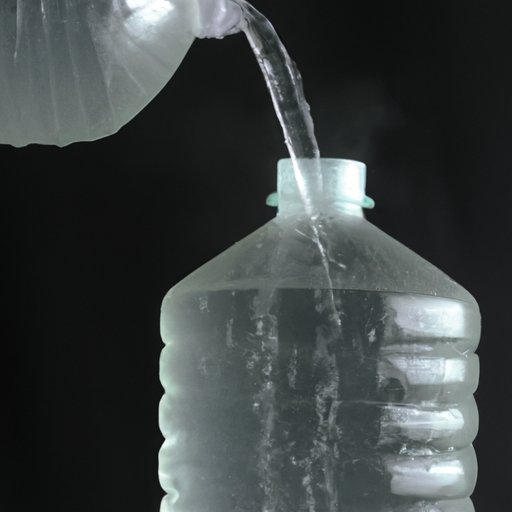I. Introduction
Water is essential for human survival. Our bodies are made up of approximately 60% water, and without it, we can quickly become ill and potentially die. In this article, we’ll explore how long a person can survive without water, the science of thirst, factors that impact survival time, the consequences of dehydration, tips for staying hydrated during extreme conditions, and common myths and facts about water consumption.
II. Surviving dehydration: How long can a human go without water?
On average, a person can survive without water for 3-5 days. However, this timeline can vary depending on factors like age, health, and environment. For example, a healthy adult in mild weather conditions may be able to survive longer than a child or an elderly person in extreme heat.
III. The science of thirst: What happens to your body when you’re dehydrated?
Dehydration occurs when the body loses more water than it consumes. When this happens, the body’s thirst mechanism kicks in to encourage water intake. Some physiological responses to dehydration include increased heart rate, decreased urine output, and dry mouth. There are also different stages of dehydration, ranging from mild to severe, each with its own set of symptoms.
IV. 5 Factors that affect how long you can survive without water
The ability to survive without water varies based on multiple factors, including body size, activity level, and overall health. Other factors that impact survival time include climate conditions, access to shelter, and access to water sources. In general, bigger people have more water to lose and may be able to survive longer, while activity level and climate conditions can shorten survival time.
V. The consequences of dehydration – How it can affect your body and health
Dehydration can have both short- and long-term health consequences. For example, mild dehydration can cause headaches and fatigue, while severe dehydration can lead to kidney damage, seizures, and even death. There have been extreme cases where athletes and military personnel have suffered serious injury or death due to dehydration.
VI. Tips for staying hydrated during extreme conditions or emergencies
It is essential to take steps to stay hydrated during extreme conditions, such as natural disasters or outdoor activities. It is recommended to drink water regularly, even before you feel thirsty, and avoid drinks that can dehydrate, such as alcohol and caffeine. In emergencies, it may be necessary to purify and conserve available water sources, such as through boiling or using a filtration system.
VII. Myths and facts about water consumption – Debunking the most common misconceptions
There are several misconceptions surrounding hydration, such as the idea that thirst is a reliable indicator of hydration status. In reality, thirst may not kick in until significant dehydration has already occurred. It is recommended that healthy adults drink at least eight glasses of water per day and increase that amount during exercise or in extreme weather. However, water needs can also vary based on individual factors like body size and activity level.
VIII. Conclusion
Water is essential for human survival, and understanding the science and impact of dehydration can help us take the necessary steps to stay hydrated. While the average person can survive without water for a few days, many factors can impact survival time, making it essential to prioritize hydration in extreme conditions. By taking steps to stay hydrated, we can avoid the short- and long-term health consequences of dehydration and ensure our bodies have the support they need to function optimally.
